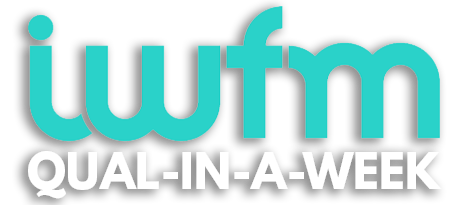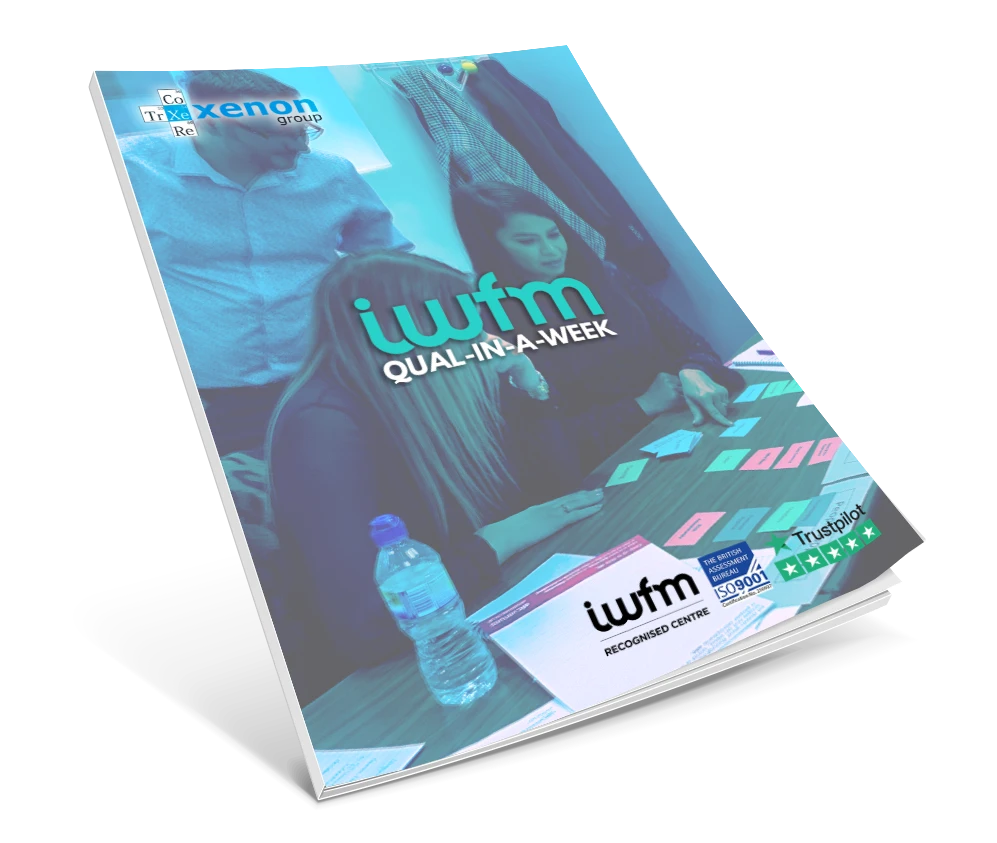Hi,
Today we’re following up on last week’s topic, where we examined some of the relevant issues with looking at one of our key stakeholder groups – our employees.
This week, we’re going to do a similar exercise with the other main stakeholder group that we need to cater for – our customers.
Don’t forget you can catch up with all of our previous issues in the Vault
And the usual reminder – enrolments are currently open for the next Qual-in-a-Week intensive course, where you can achieve an IWFM Level 4 qualification in just one week. Find out more here.
So without further ado, let’s get started…
Customer Relations
How any organisation deals with its customers will have a marked effect on the success of that organisation. Customers do not only return to an organisation because of the price of the goods – they look for good customer service as well. They look for honesty and integrity.
Our customers may be internal – the employees within our organisation for whom we are providing Facilities Management services – or they may be external. We may for example, be a service provider providing FM services for a client.
Whoever our customers are, to ensure we have an ethical relationship with them we should deliver services as contracted so that the customer receives exactly what he/she is expecting and we should ensure that we have a comprehensive feedback mechanism that our customers can use to feedback to us comments relating to the service we provide.
Having regular meetings and clear and accessible communication channels stating how the customer can contact you will help to improve relations and the openness improves the ethical relations. It is also important for the customer to know that if the customer provides feedback you will, wherever possible, implement change after analysing that feedback.
Putting customers at the centre of all activities is seen by many as an integral part of quality, pricing, and product differentiation. On one level, customer relations means keeping customers fully informed, turning complaints into opportunities, and genuinely listening to customers.
On another level, being a customer-focused organization means ensuring that all activities relating to trading—for example, planning, design, production, marketing, and after-sales of a product or service—are built around the customer, and that every department and individual employee understands and shares the same vision. Only then can a company deliver continuous customer satisfaction and experience good customer relations.
A relatively recent example of unethical customer relations centres on the mis-selling of Payment Protection Insurance (PPI). Almost 34 million policies have been sold since 2001. Not all of these were mis-sold but, given the fact that the banks have put aside almost £14bn to cover compensation claims it can be safely assumed that a large percentage of these were mis-sold.
Many banks, insurance and credit card companies made more money from the Payment Protection Insurance policies they sold than from the primary purchase made by the individual. Some examples of unethical behaviour when selling these policies were:
-
Not explaining the policy so the customer had all the information on which to make an informed decision as to whether to buy or not
-
Telling the customer that the policy was compulsory
-
Including the insurance policy payments within the price without making this clear
-
Not asking about pre-existing medical conditions which would make the policy null and void.
These practices had become so widespread that an entire industry emerged with the sole intention of helping people reclaim the money that they had lost. The perpetrators suffered significant financial damage as they were forced to repay huge sums, as well as the reputational damage both individually and as an industry.
That’s all, folks
That’s all for now. If there’s one takeaway I’d encourage you to learn from this, it revolves around the issue of trust. Trust between service providers and customers – whether internal or external – is critical to the success of your department and organisation.
We used a more generic example above, but I have come across countless examples within the facilities management industry where a breakdown in trust has resulted in poor outcomes for all parties.
This can be particularly prevalent in large-scale, outsourced arrangements such as TFM and PFI, where a lack of transparency on both sides leads to spiraling costs, poor service and a breakdown in relations between providers and customers.
Next week we’ll be moving on to a new topic, and we may be trying something a little different – watch this space!
Don’t forget to check out the Qual-in-a-Week intensive course if it sounds of interest. You can find out more here.
Have a great week!
Chris and the Xenon Team
P.S. If you haven’t already studied or started studying for an IWFM qualification, which will cover topics like this in depth and fully assess your understanding, you may want to have a look at our guide to the IWFM Qualifications which will give you a full breakdown of how they work and what’s involved in the different levels. You can download it here.
P.P.S. If you’re already considering taking a qualification but don’t know which level to go for, a good starting point is our One-Minute-Leveller tool, which will ask you a few questions and give you a recommendation based on the result. You can access it here.



